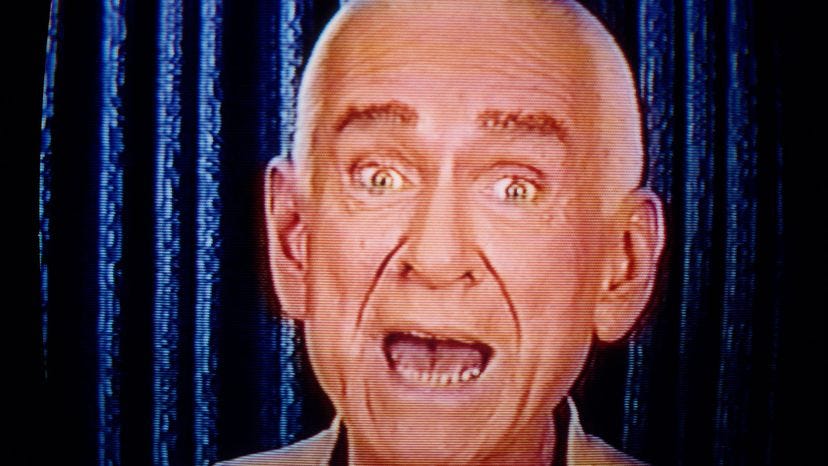Riding A Comet Through Heaven's Gate
When genderlessness is next to godliness
This is the most recent essay in my ongoing series at Osborne Ink on the history of UFO religion. I have decided to cross-post it here for premium subscribers to The Distance because the story has uncanny resonance to the customary topics of this website. An audio version of this post is embedded below the paywall.
During the afternoon of 26 March 1997, San Diego sheriff’s deputies responding to a 911 call discovered 39 bodies decomposing at a residence in the suburb of Rancho Santa Fe, California. The dead wore black uniforms: Nike Decades sneakers, sweat pants, and shirts with patches reading “Heaven’s Gate Away Team.” Purple shrouds covered their faces. Everyone had $5.75, a five dollar bill and three quarters, in their shirt pocket.
Heaven’s Gate was a tiny religious community, more colloquially called a ‘cult,’ and the phrase “away team” was just one of many Star Trek references they used as spiritual terminology. Adding a layer of uncanny surrealism, one of the dead members of the group was in fact Thomas Nichols, brother of actress Nichelle Nichols, who played the part of Uhura in the original Star Trek TV series. Researchers would determine later that at the beginning of his spiritual leadership, cult founder Marshall Herff Applewhite Jr. was at least partly inspired by the works of science fiction authors such as Robert Heinlein and Arthur C. Clarke. In Beyond Human—The Last Call, a series of satellite TV broadcasts by the cult in 1991-1992, Applewhite explained that science fiction language was one of the “contemporary ways to express our information that could potentially override traditional religious, as well as ‘New Age,’ preconceptions and stereotyping.” They thought it made them more normal-seeming.
The group was not kidding about their “Next Level Language.” They were becoming “Next Level Beings” with extraterrestrial bodies, therefore their shared house was a “craft,” and anyone who left the house was conducting “out of craft tasks.” According to Robert W. Balch, one of the first scholars to encounter Heaven’s Gate in its formative years, this was a cult practice from the beginning, wherever they abided. Within their “craft,” Heaven’s Gate had “rest chambers” rather than bedrooms, a “nutri-lab” instead of a kitchen, and an office they called “the compu-lab.” Early adopters of the internet, Heaven’s Gate made a fair income from building web pages in the first two years of the web. Someone even posted the group’s final website update from their compu-lab. “Our 22 years of classroom here on planet Earth is finally coming to conclusion,” they announced. This was their moment of “graduation” from being mere humans. They were leaving “this world” in order to “go with Ti’s crew” to the Next Level in a spaceship.
Ti was the cult name of Bonnie Nettles, longtime spiritual partner and Platonic companion to Applewhite, who went by Do. Nettles had died of metastatic cancer in 1985, leaving Applewhite to lead their little church on his own. He had planned to go with her on the spaceship, and so Applewhite’s theology shifted. Members first speculated that Applewhite was Jesus as early as 1975. It became church doctrine between 1992 and 1994. In 1994, Applewhite announced that Nettles (“Grandfather”) was God, and that the cult might have to give up their mortal forms in order to be with her again. The following year, Heaven’s Gate publicized themselves on Usenet with an explicit claim that Applewhite was Jesus (“Father”). He said the world was ending soon. He was waiting for a sign, he said, and at the end of 1996, the Hale-Bopp comet provided one.
Heaven’s Gate began to prepare for their rendezvous with Ti. They were certain the time had come, now, and that they knew what to expect, because they were avid listeners of AM talk radio star Art Bell. When the story of a planetary spaceship following the comet turned out to be a hoax, Applewhite and his little flock remained undeterred. Their belief that the world was about to be “recycled” was too strong for disconfirmation with evidence. While scholars have acknowledged that Bell’s program triggered a group that was well along its way to mass suicide, this essay might be the first attempt to understand exactly what the broadcast contained that resonated so strongly with Heaven’s Gate.




